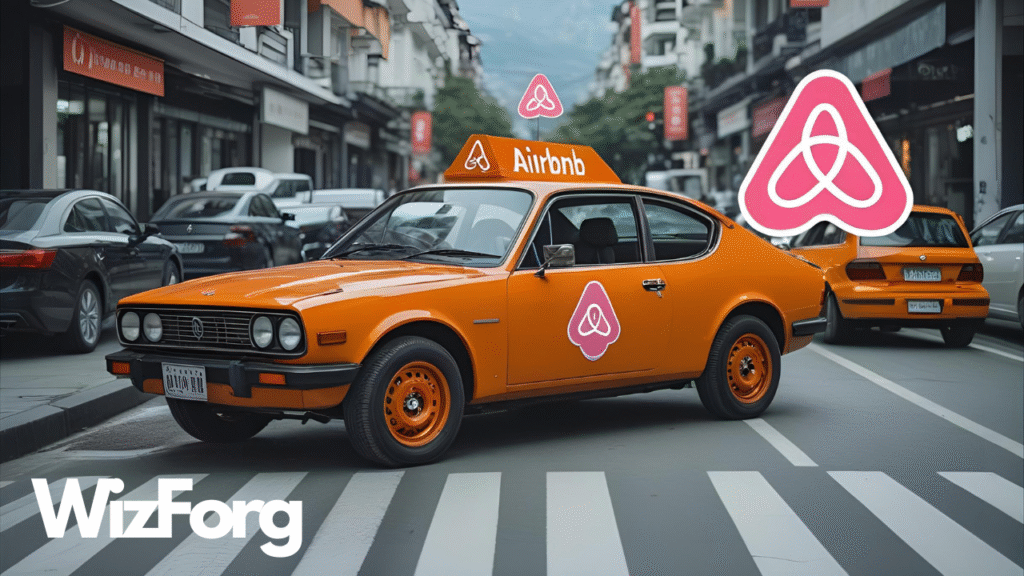Ride-sharing and home-sharing platforms, such as Uber and Airbnb, have not only revolutionized travel but also significantly impacted local economies. They’ve made it easier for tourists to explore new places and for locals to earn extra income. However, this impact is not always positive. Some countries and cities have placed outright bans or severe restrictions on these platforms, raising concerns about their influence on local economies.
It’s Not Just About Tech—It’s About Control
When Uber and Airbnb first launched, they shook up traditional industries that had operated under strict regulations for decades. Suddenly, taxi companies and licensed hotels found themselves in competition with private individuals who didn’t require the same permits or adhere to the same rules. This disruption was viewed as a problem by governments, primarily because it put regulated businesses at a competitive disadvantage.
In countries like Germany and Spain, strict laws govern who can transport passengers or rent out rooms. These laws exist for the purposes of safety, taxation, and public order. When Uber drivers and Airbnb hosts operate outside of those systems, they’re often seen as bypassing the rules entirely.
Safety and Licensing Concerns
Governments argue that platforms like Uber and Airbnb can pose safety risks. Traditional taxi drivers go through background checks, vehicle inspections, and training. Hotel operators are subject to fire safety inspections, health regulations, and insurance requirements. But with gig economy platforms, those standards can be inconsistent or absent.
For example, in Japan, short-term rentals through Airbnb were temporarily suspended due to unlicensed hosts violating safety codes. Uber has faced bans in places like Denmark, Hungary, and parts of Italy because drivers lacked commercial licenses.
Housing Crisis and Rising Rents
One of the most significant criticisms of Airbnb is its impact on the housing market. In popular cities like Amsterdam, Barcelona, and New York, large numbers of apartments have been converted into short-term rentals. That reduces the supply of long-term housing, drives up rent, and displaces residents.
To curb this, cities like Berlin and Paris have limited the number of days a property can be rented each year, or banned short-term rentals altogether in certain districts. Some require hosts to register or obtain permits, which Airbnb doesn’t always enforce.
Worker Rights and Fair Competition
Uber has also been criticized for undermining labor standards. In countries with strong labor protections, Uber drivers are often viewed as gig workers with limited rights, including no guaranteed pay, no health insurance, and no job security. Traditional taxi drivers, by contrast, often belong to unions and work under employment contracts.
That’s why places like London have forced Uber to recognize drivers as workers, not just contractors. Elsewhere, Uber has been banned outright to protect local jobs or force the company to comply with labor laws.
Loopholes and Legal Gray Areas
Both Uber and Airbnb often enter markets in what are known as ‘legal gray zones’—offering services before laws catch up. These zones are areas where the legality of a particular action is unclear or undefined. This strategy sometimes backfires, as in Thailand, where ride-hailing was illegal for years, with fines imposed on drivers.
When these platforms ignore or push boundaries, it triggers government crackdowns. Residents also push back, arguing that these apps increase congestion, noise, or tourist saturation.
A Global Patchwork of Laws
The result? Uber and Airbnb are available in some cities, restricted in others, and banned outright in a few. It’s a complex patchwork of laws shaped by local politics, economics, and cultural attitudes, resulting in a global landscape of regulations.
For example:
- Uber is banned in places like Brussels, Colombia, and parts of Greece.
- Airbnb is restricted in cities like Barcelona, Singapore, and New York City.
- Both are limited in Japan, where licensing and zoning laws are tightly enforced.
Final Thoughts
Uber and Airbnb aren’t just digital platforms—they’re flashpoints in global debates over labor, housing, safety, and fairness. These debates revolve around issues such as labor rights for gig workers, the impact of short-term rentals on housing markets, and the safety and fairness of ride-sharing services. While they’ve helped millions, they’ve also exposed cracks in existing systems. The next time you book a ride or a room abroad, know that behind that convenience lies a much larger battle playing out.
Want to explore more hidden truths behind global travel, tech, and law? Visit Wizforg.com for articles and subscribe to our YouTube channel for videos that reveal what most people never see.



